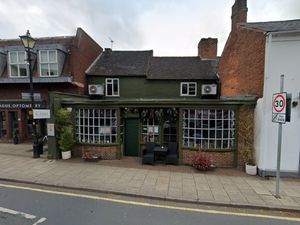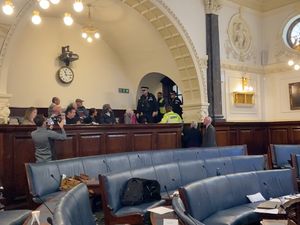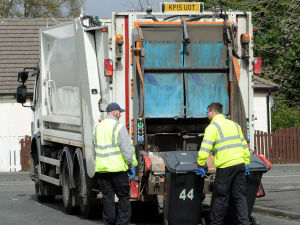Is the climate right for a Lib-Dem revival?
If a week is a long time in politics, 36 years must seem like an age. It was 1981 when Liberal leader David Steel told his party conference to "Go back to your constituencies and prepare for government," an act of hubris the affable Scotsman would never quite live down.
Of course, some three decades later, his successor would get a taste of government, but not quite in the way that Mr Steel had envisaged. Back in 1981, in alliance with the Labour breakaway SDP, it briefly seemed like the Liberal Party was on the brink of something big.
For a short while the SDP/Liberal Alliance led the opinion polls, with Margaret Thatcher's Conservative government languishing in third place. It looked like, for the first time since the days of David Lloyd George, that the party could be on the brink of a dramatic return to power.
It seems a long time since 1981, the year of the fairytale wedding between Prince Charles and Lady Diana, and when Aston Villa won the league title. Yet politically speaking, the parallels to the present day are striking. Two years earlier, Labour had suffered a crushing election defeat, and was floundering after a lurch to the left under a controversial new leader. At the same time, Margaret Thatcher's Conservative government was committed to a policy of uncompromising austerity, leaving something of a vacuum in the centre. All of which begs the question: could the time be right for another Liberal Democrat revival?
Present leader Tim Farron is an optimistic sort of fellow, but is unlikely to be quite so bold as his predecessor. No doubt remembering how the SDP/Liberal opinion lead lasted a matter of months, he was much more measured in his ambitions when he addressed his party's spring conference last month. He spoke of the Liberal Democrats replacing Labour as the main party of opposition within 20 years, an ambitious target, but one which is unlikely to leave him with quite as much egg on his face as Steel's.
In the months since Britain voted to leave the European Union, the Liberal Democrats have been making quiet progress in the opinion polls, with a high point being the victory in the Richmond Park by-election, which saw Lib-Dem Sarah Olney overturn Zac Goldsmith's 23,000 majority to snatch the seat from the Conservatives.
Lembit Opik, the Liberal Democrat MP of Montgomeryshire from 1997 to 2010, believes there is scope for a revival, but only on three conditions.
"First, the Labour Party has to carry on struggling, and the party has to build up its activist base," he says.
But most importantly, he says the party also has to offer something different and distinct from the other parties.
"The Liberal Democrats' opposition to the Iraq war gave us something different, that worked quite well for us, and the same could be said for tuition fees until of course they went back on that," he says.
"At the moment they are trying to do something with Brexit, which doesn't seem like a bad idea, bearing in mind that 48 per cent of people are opposed to that.
"The problem with that will be in trying to expand on what it is we are calling for, without seeming like we are ignoring the outcome of the referendum."
Mr Opik is scathing about former Lib Dem leader Nick Clegg, saying he must bear much responsibility for the party's collapse at the last General Election.
"The party has gone from 57 MPs to nine because of Nick Clegg's poor leadership," he says, adding that it would be wrong to say this is simply a price for going into coalition with the Conservatives in 2010.
"It wasn't the Coalition," he says. "When I was leader of the Welsh Liberal Democrats, we governed in coalition with Labour. At that time we had a Labour government that wasn't popular at the time.
"It's what you do with it that's the problem. Nick Clegg mismanaged the situation, and he didn't exercise proper power, he was just a junior partner."
There is no doubt though, that during the Coalition years, the Liberal Democrats were usurped by Nigel Farage's Ukip as the natural home for anti-establishment protest. While in the past, people who wanted to strike against the status quo turned had turned to the Lib-Dems, it was much harder when the party was in government. These disgruntled voters found a ready home in Ukip, particularly under the populist leadership of Nigel Farage. However, with the party's raison d'etre – withdrawal from the EU – now accomplished, Mr Farage retired, and his successor struggling to make much of an impression, these disaffected voters could provide rich pickings for Mr Farron's party.
Polling expert Matt Singh, of the Number Cruncher Politics website, says there is some good news for the Liberal Democrats after the party's collapse two years ago. He says the likelihood is that the Liberal Democrats will see a boost in support by the time of the next General Election, but the question will be how significant that is.
"The interesting thing is that while the national polls seem be showing something, a little bit up from the eight per cent share of the vote in 2015, it's not a huge movement," he says. "But when you look at the council by-elections, there are some pretty big numbers."
Mr Singh also points out that the Liberal Democrats are traditionally a party which struggles during the mid-term, but tends to perform better when an election approaches.
"From the merger of the Liberal and Social Democratic parties in 1988 until the start of the Coalition government in 2010, the party has on average performed five points better in general elections than in polling across the whole of each parliament," he says.
He says the council by-elections are interesting because they do not attract the media attention in the same way that Westminster by-elections do.
"They are pretty much like local elections, and the numbers have been so big, yet the national polls have been saying something else, and it's a bit of a poser why the Lib Dems are doing so much better there."
He says the big test will come at the local elections next month.
"It will be interesting with the local council elections coming up next month to see which Liberal Democrat performance we will see.
"Will it reflect the opinion polls, or will it be like some of the council by-elections we have seen?"
One of the explanation for the variation in the Lib-Dems electoral performance may be down to geography.
The Liberal Democrats have long been seen as the most pro-EU of the major political parties, and have done particularly well in areas that voted to remain in the EU in last year's referendum.
Mr Singh believes there could be much mileage for the Lib Dems in exploiting this section of the vote, as unlike the Labour and Conservative parties, which have a much broader make-up, the Liberal Democrats derive their support largely from middle-class, pro-European voters.
"That doesn't work for Labour because Labour's coalition – and that of the Conservatives – has been on both sides of the EU debate.
"The traditional, working-class blue collar vote is much more likely to be in favour of leaving the European Union."
An interesting test of this theory will come at next month's Gorton by-election caused by the death of Gerald Kaufman. At the last election they came a distant second to Labour, but the seat also saw 62 per cent vote to remain in the EU. Ukip leader Paul Nuttall will testify, though, that referendum voting patterns do not always translate into support at parliamentary votes.
In terms of seats, Lib Dems start in second place in 63 of the 632 constituencies in Great Britain, and around a quarter of those have single-digit percentage majorities. Furthermore, given that no party besides the Lib Dems or Conservatives has made progress since 2015, their ability to accumulate tactical votes will very likely be strengthened.
"Recovering from the worst Liberal general election result in 45 years was never likely to be quick or easy," says Mr Singh.
"Nevertheless, while the recovery will require a good deal of patience, there’s much for the Lib Dems to be optimistic about."
Mr Farron won't be telling his party to go and prepare for government. But with Theresa May enjoying a seemingly unassailable lead in the opinion polls, and Labour under Jeremy Corbyn struggling to land any real blows, there is a clear opportunity for Tim Farron's party to carve out a niche as an unashamedly pro-EU party on the centre-left of British politics.





